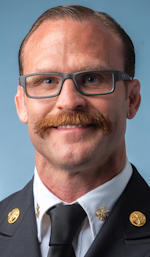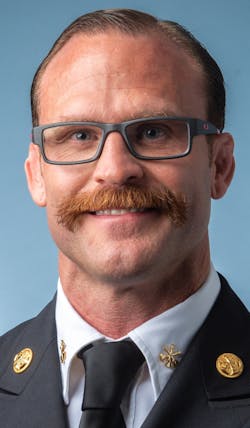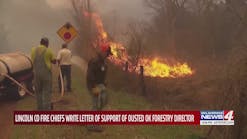I am an avid reader of all sorts of non-fiction material. I have a thirst for knowledge that I cannot control. Therefore, I am always looking for interesting ideas and points of view on leadership and everyday life. Plus, when you fly a million miles, you must have something productive to do.
I am currently reading a book by Mark Manson that describes a counterintuitive approach to living a good life. Before you make a judgment about his ideas, remember, “It is the mark of an educated mind to be able to entertain a thought without accepting it” (Aristotle).
While reading this book, I agreed with certain ideas and disagreed with some as well. That’s the beauty of learning. You can learn something from everyone if you have an educated mind, not an ego. One idea that I came across in Mark’s book was called Manson’s Law of Avoidance. It states that, “The more something threatens your identity, the more you will avoid it. That means the more something threatens to change how you view yourself, how successful/unsuccessful you believe yourself to be, how well you see yourself living up to your values, the more you will avoid ever getting around to doing it. There’s a certain comfort that comes with knowing how you fit into the world. Anything that shakes up that comfort—even if it could potentially make your life better—is inherently scary” (Manson, 2016, pg. 92).
The modern fire service
Now, let’s relate that to our profession, which is innovating daily with scientific research backing up what TODAY’S firefighters experience in this MODERN environment. The new research is telling us how modern products are burning, how we can provide better service to our citizens, how to lead in today’s multi-generational environment and, most importantly, how we can take precautionary measures to make sure WE go home after our shift. Unfortunately, there are still individuals who negate this research because of Manson’s Law of Avoidance. You see, the new fire service research provides better methods of performing in the modern environment, but to the naysayers, it threatens their identity, how they view themselves, and the values that they correlate with being a firefighter.
I understand this a great deal. I was one of the firefighters who disagreed with the new research on operations, leadership, fire science and basically everything that was cutting edge. It threatened my idea of being a tough, renegade firefighter who extinguished all fires no matter what. Well frankly, I was ignorant and uneducated to the fact that there was a much better way to operate. I blamed the research because I thought it was wrong when I should have been looking in the mirror and blaming myself. Ignorance at its best, my friends.
Unfortunately, this is all too present in our profession. There are individuals who haven’t ridden a rig in years but want to chastise what WE do. WE as in the individuals like me who ride a fire truck TODAY. WE as in the individuals who are working tirelessly to find out how we can prevent cancer and other diseases that have been killing firefighters for generations. WE as in the individuals who are educating others on PTSD and the importance of mental health. WE as in the individuals who are working to reduce obesity in our profession. WE as in the individuals who are developing safer operations so we can prevent senseless line-of duty deaths. WE as in the individuals who are turning to higher learning to ensure that when the opportunity arises to lead, we are prepared with education AND experience, not just the fact that you’ve been on the job 30 years. Congratulations, now go learn something new.
Be prepared to help
If the new research and methodologies to perform our duties in this profession intimidate you, I assure you that you will be more intimidated the day on an emergency scene when you don’t have the answers, when you realize that you don’t know it all. I’ve been there and it’s not a good feeling. What are you going to do then? Do you really want to live with that? Take it from someone who does live with that feeling; you don’t.
The answers lie in an educated mind…

Dr. David Griffin
Dr. David Griffin is the assistant chief of administration in Charleston, SC. He was the operator of the first-due engine on June 18, 2007, when nine of his fellow firefighters perished. Griffin has come through the ranks in operations in every uniformed position, from firefighter to battalion chief and shift commander to his current position, during his 19-year career in Charleston. He has a bachelor's degree in education from The Citadel, a master's degree in executive fire service leadership, and a doctorate of education in organizational leadership and development. Griffin is the author of "In Honor of The Charleston 9: A Study of Change Following Tragedy," among three other books. He is an international speaker and instructor, a certified Chief Fire Officer and Chief Training Officer with The Center for Public Safety Excellence, an IFSAC/Pro Board-certified Fire Officer IV and a graduate of the Executive Fire Officer Program from the National Fire Academy. He is a graduate of Harvard University's Kennedy School of Executive Education program: Senior Executives in State and Local Government and of the Psychology of Leadership program at Cornell University's SC Johnson College of Business. Griffin is the owner of On A Mission, LLC, at drdavidgriffin.com.






